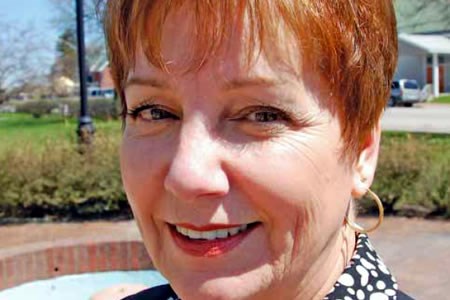Northwestern Ontario is a treasure trove of untapped mineral wealth with vast opportunities for sustainable development, but Ottawa and Queen's Park must collaborate on a regional strategy and respect First Nation treaty rights, say community leaders.
So long as the rapidly industrializing countries of China, India and other lesser developed countries are moving ahead and the demand for natural resources outstrips supply, northwestern Ontario should be booming in mining and other sectors, says Dennis Wallace, Kenora's economic development chairman.
But that's not happening.
"Canada and Ontario are not working together as partners on a political level. There's not a common vision for Northern Ontario."
Sustainable development will only happen if Ottawa, Queen's Park and First Nations engage in a "respectful process with the treaties in place," he says.
Virtually all of the northwest's economy is tied to natural resources. But whether communities prosper or fail depends upon government permitting approvals on Crown lands, infrastructure investment and cooperative partnerships with First Nations.
A region that once staked its livelihood on the forestry industry is slowly waking up to the motherlode of potential mineral riches in gold and base metals.
Mineral exploration and logging on Aboriginal territorial land and resource revenue sharing have emerged as development issues stemming from Native blockades in the Whiskey Jack Forest and Big Trout Lake.
Many community leaders are frustrated by the glacial pace at which government moves on economic policy and in resolving disputes.
In mid-June, senior Ministry of Northern Development and Mines officials were stumping across the North to roll out the McGuinty's government Northern Growth Plan. Community leaders were planning to be out in force armed with the findings of the province's own economic prosperity report prepared by former Lakehead University president Dr. Robert Rosehart.
With southern Ontario's auto manufacturing economy floundering and the northwest's mining industry still in its fledgling stages, Dryden Mayor Anne Krassilowsky says this is rare opportunity to shape policy doctrine at Queen's Park.
"It's going to be our input that champions what's going to be done."
Krassilowsky knows all about the disconnect between Queen's Park and the North by serving on the Ontario Forestry Coalition, Northwestern Ontario Municipal Association and lately the Common Voice, a regional advocacy group.
There must be a dedicated government effort to improve infrastructure with better roads, small airports and water treatment plants to help attract and expand businesses, she says.
Further, the government must open doors to cheaper regionally-generated power, tax incentives to attract companies and return of government jobs to smaller communities.
"You only have to go thirty miles to the west and it's booming," says Kenora Mayor Len Compton, where major hydroelectric power projects in Manitoba are under construction with enough generation to export to Ontario.
Closer to home, power generated in the northwest remains stranded because of transmission deficiencies with the provincial grid, while industries pay Toronto prices for energy.
Compton wants to encourage large and junior miners to explore northwestern Ontario, but that's being hampered by the province not dealing with First Nations people on the issue of traditional lands.
It must be resolved to allow exploration work to continue, he says.
The City of Kenora is collaborating with Grand Council Treaty 3 as an equal partner in a "rights-based relationship" in planning the community's economic future. A part of that relationship is built from a consultation document known as the Great Earth Resource Law.
"If we don't have a working relationship, we're not going to progress with the treaty organizations," says Compton.
Wallace says First Nations can be investors, mine owners and suppliers as they are with diamond miners in the Northwest Territories and in the Alberta oil sands.
"That process is just starting here and not all the parties are fully present yet."
Wallace has 30 years experience in Aboriginal development work having worked in Indian and Northern Affairs Canada. He has presided over the Atlantic Canada Opportunities Agency (the East Coast version of FedNor) and been a chief federal negotiator with First Nations in the Northwest Territories.
A good start to improve the Aboriginal relationships, he says, would be the federal appointment of a treaty commissioner for Ontario, similar to that of Manitoba and Saskatchewan
"In northwestern Ontario we are all partners linked to one another within the treaties but we're held hostage to fact that some partners aren't fully engaged," says Wallace.




